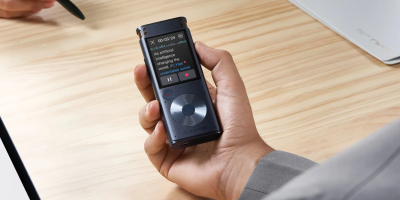The Digital Millenium Copyright Act (DMCA) is designed to be reviewed and updated every three years so that definitions of fair use can adapt as quickly as the technology they are regulating, and in the latest round of adjustments and clarifications made to the act, the Librarian of Congress and the Register of Copyrights have deemed processes such as the jailbreaking and rooting of smartphones perfectly legal under fair use provided they are not employed to illegally distribute copyrighted material or install pirated software. The exemptions added by the Library of Congress deal with owners of smartphone handsets circumventing protection systems in order to install legal software or to connect to any wireless carrier their phone is compatible with.
Here is the text of the relevant exemptions added to the DMCA:
(2) Computer programs that enable wireless telephone handsets to execute software applications, where circumvention is accomplished for the sole purpose of enabling interoperability of such applications, when they have been lawfully obtained, with computer programs on the telephone handset.
(3) Computer programs, in the form of firmware or software, that enable used wireless telephone handsets to connect to a wireless telecommunications network, when circumvention is initiated by the owner of the copy of the computer program solely in order to connect to a wireless telecommunications network and access to the network is authorized by the operator of the network.
This comes as a true win for members of the development community who tirelessly work away at hacking every new Android phone released. Not that the law was stopping them before, but now those that choose to do so are free to root their handsets without any fear of legal ramifications. While no one has made too much of a fuss over the hacker community revolving around Google’s open-source operating system. the Electronic Frontiers Foundation (EFF) has had an ongoing battle with Apple over the legality of jailbreaking their iPhone handsets. Apple contends that jailbreaking weakens and violates the copy protection designed to preserve copyrighted aspects of iPhone software. The EFF on the other hand sees such modifications to stock software and hardware as part of the fair use rights an owner obtains when purchasing such a smartphone, and the Library of Congress has agreed with the latest changes to the DMCA.
If for some reason fear of the cops busting your door down was the only thing keeping you from rooting your Android phone, fear no more and get to rooting with the spirit and tenaciousness of any law-abiding American.
[via IntoMobile]











Note, it does not force manufacturers to make it easy on developers to achieve root. It lets the companies put any kinds of locks, etc that they want, but gives devs permission to go nuts trying to break them.
Fair use for all!
Of course, it doesn’t mean that manufacturers have to allow rooting, or that using rooting to circumvent things like tether blocking are protected as tethering (when blocked) would not constitute authorized use. In effect, this ruling doesn’t change much of anything.
Yeah, I just got done reading how it is now officially legal to jailbreak iPhones, but that it won’t stop AT&T/Apple from issuing updates to counter it.
thats very true. speaking of locks… i wonder how they’re coming on the droid x? anybody hear anything? i mean unless im mistaken, uploading custom roms falls under this little piece of heaven right?
So if I am reading this right I should be able to root my phone and add customs roms without voiding the warranty on my droid.
Still voids the warranty though doesn’t it?
@antonio Don’t read more into it than is there. This has nothing to do with warranty. It means that if you follow the guidelines outlined above, you can’t be prosecuted for rooting. It’s not a carte blanche license to do whatever you want, and manufacturers are still free to protect their systems as they see fit. if the warranty states that modifications void the warranty, then a custom ROM will void your warranty, plain and simple.
That was my question to. Will it still voice the warranty? However if it voided the warranty because the manufacturer decided that it was against the law that is no longer an argument. However if it was just to tell people that if you do it you will not get any support from us, then it will still be the case.
so someone answer this for me please. If i root my droid x, and don’t put any ROM’s or anything on it, will it void my warranty? Thanks!
@gabe, no it shouldn’t void warranty. just to be on safe side never mention it to verizon, and if need repair, un root first to avoid any issues.
on a side note, my fried got the droid x this weekend, walmart had some in stock. got it rooted. then the camera hardware died. no longer would take pictures. so had to unroot.
@jj- I wouldnt hold my breath on the bootloader being unlocked which is what is needed for custom roms. Its the same bootloader on the milestone and nobody has gotten anywhere on that in 7+ months.
It aint going to happen!
If you water your phone will it root ?
@Matt I know all of that. I was just speaking theoretically and also in regards to phones that have already been unlocked.
This is really a non-story. It reads like, “You can legally root your phone to perform authorized functions.” Doh! You don’t need to root your phone to use authorized functions. Sure, there’s the “interoperability” clause in there, but how many applications need root to interoperate? It’s a lot of words to say, “Business as usual.” As far as warranty, rooting itself may or may not void it, but most anything you would use root to do (like overclocking) certainly will. If you kill your phone and unroot to collect on the warranty, well, that’s fraud. Take that for what it’s worth.
The issue goes much father than whether DCMA “allows” you to change your handset innards. lol… There is some serious collusion and possible anti-trust activities amongst the carriers and handset manufacturers. Arthur, actually, it can very well prevent them from doing just that… can you imagine automobile manufacturers preventing you or anyone else from working on their products? Or preventing an automobile from using gasoline that is not in agreement with the manufacturer?
–
It’s ridiculous and high time the Law’s meet Fair Use Doctrine and give back to the consumers their RIGHTS over equipment they purchase (must), not only that, but equipment that is un-usable anywhere else.
–
So if it “IS” fair use, any attempt on their part to prevent you from performing said use (rooting) can be corrected by the courts!!! Niceeeee…. hahaha!
–
That all said, I think there has been real benefits to the mobile handset community and the OS developers by the dark side users. I mean, come on now, tell me some of those custom ROM’s Code didn’t get pilfered and place into some updates. ;)
@Cool, how do you pilfer open source code? Or are you saying that the custom ROMs are just as closed as the manufacturer’s code? Also, did you read the language of the exemption or just skim the article. It appears to be a narrowly worded exemption, not a free-for all.
Of course it voids the warranty, this basically says you are “allowed” to do it (ie cannot be put into jail, incur any fines, etc).
That sound you here is Steven Job’s teeth gnashing!
Uprooted, the 3 year review of DCMA and copyright restrictions has made an exemption that is long over due with respect to the digital spectrum. Narrow or not, what it says is that if my actions are not to use the device for illegal purposes, such as stealing signal/services, then FAIR use would dictate that ROOT ACCESS is NOT in violation of the acts. That is all good and as it SHOULD be.
–
Like I said, it’s HIGH TIME, that a consumer, gets the RIGHT to do whatever they want with equipment they PURCHASE and OWN!!!
–
:)
“@jj- I wouldnt hold my breath on the bootloader being unlocked which is what is needed for custom roms. Its the same bootloader on the milestone and nobody has gotten anywhere on that in 7+ months.It aint going to happen!”
Psst. The Droid X has already been rooted.
;)
They should have reviewed bloatware and the provider/manufacturer’s ability to not allow it to be uninstalled. If it isn’t integral to the OS, then we as the user should have the right to uninstall it.
Yeah.. the Blockbuster app is.. uhhh.. kinda kewl.. but.. I don’t use Blockbuster anymore and the fact that I have to pay the same price to rent a movie on my phone for 24 hours of viewing as I would walking into a store to rent it or 4 times as much to rent it at a BlockBuster Express kiosk….. Blah. I’d rather buy the movie and rip it to my phone.. Now there is some fair use for ya!
Let’s also not forget that Sony has succeeded in pulling OtherOS support from the Playstation 3! I would have bought an Xbox 360 if I had known they could pull stunts like that!
Please don’t tell me, your all forgetting another part of the ruling. The Part ‘I’ Love the most. We are now able to take our own, used phones. Over to another carrier with us! Like an HTC Evo, over to U.S.Cellular, or Verizon. (CDMA to CDMA) Droid X to Sprint.